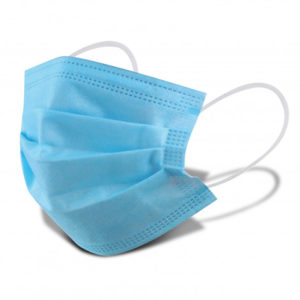Coronavirus COVID 19 Information
Coronavirus COVID 19 Information
Information provided by the Australian Government Department of Health.
The World Health Organisation (WHO) has announced that COVID-19 is a pandemic.
Currently, Australia does not have widespread community transmission of COVID-19. However, the Prime Minister has activated the Emergency Response Plan for Novel Coronavirus (COVID-19).
What is Coronavirus?
Coronaviruses are a large family of viruses which may cause illness in animals or humans. Coronavirus (COVID-19) is a new virus that can cause an infection in people, including a severe respiratory illness. The most recently discovered coronavirus causes coronavirus disease COVID-19.
How is the infection spread?
COVID-19 spreads through close contact with an infected person; mostly face-to-face or within a household. It cannot jump across a room or be carried for long distances in the air so we should all go about our lives as normal.
Close contact means greater than 15 minutes face-to-face or the sharing of a closed space for more than two hours with a confirmed case. A close contact could include any person meeting any of the following criteria:
- living in the same household or household-like setting (for example, a boarding school or hostel)
- direct contact with the body fluids or laboratory specimens of a confirmed case
- a person who spent two hours or longer in the same room
- face-to-face contact for more than 15 minutes with the case in any other setting not listed above?
Can the virus be transmitted in a package or parcel?
The likelihood of this occuring is extremely low. The coronavirus has "some environmental longevity (hours to days) depending on temperature, surface conditions, time and humidity," Caravanos said. But as the World Health Organization explains, "it is very unlikely that the virus will persist on a surface after it has been moved, travelled, and exposed to different conditions and temperatures."
How can I reduce the chance of being infected?
Ten ways to reduce your risk of coronavirus
- Wash hands often with soap and running water, for at least 20 seconds. Dry with paper towel or hand dryer.
- Try not to touch your eyes, nose or mouth.
- Cover your nose and mouth with a tissue when you cough or sneeze. If you don’t have a tissue cough or sneeze into your upper sleeve or elbow.
- Isolate yourself at home if you feel sick. If you take medication ensure you have adequate supplies.
- Phone your GP first if you need medical attention. They will tell you what to do.
- Continue healthy habits: exercise, drink water, get plenty of sleep, and now is the time to quit smoking.
- Don't wear a face mask if you are well.
- Buy an alcohol-based hand sanitiser with over 60 per cent alcohol.
- Get the flu shot (available April).
- Remember- shaking hands is optional!
Who needs to isolate?
Specific requirements are in place for people who have returned from a country or region that is at high or moderate risk for COVID-19, or think may they have been in close contact with a confirmed case of coronavirus.
Do I need to wear a face mask?
You do not need to wear a mask if you are healthy. While the use of masks can help to prevent transmission of disease from infected patients to others, masks are not currently recommended for use by healthy members of the public for the prevention of infections like coronavirus.
What should I do if I believe I am at risk?
If you become unwell and think you may have symptoms of coronavirus, seek medical attention.
Call ahead of time to book an appointment. Tell your doctor about your symptoms, travel history and any recent close contact with someone who has coronavirus.
If you must leave home to see your doctor, wear a surgical mask (if you have one) to protect others.
Coronavirus Health Information Line: Please call 1800 020 080 if you are seeking information on novel coronavirus. The line operates 24 hours a day, seven days a week.

